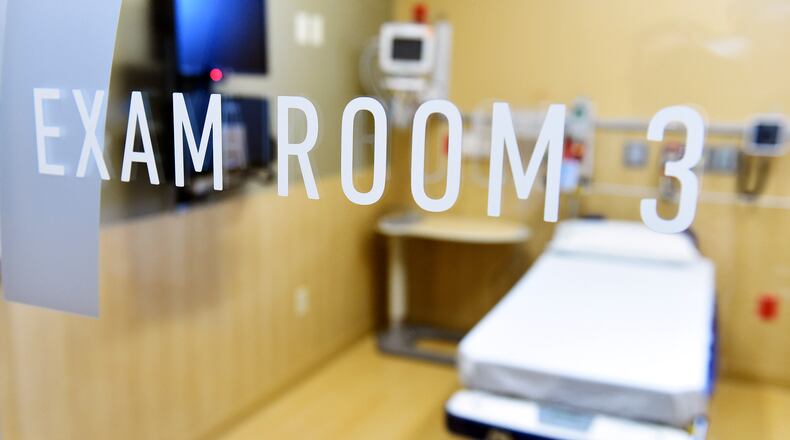Starting Tuesday , the association’s member hospitals in its 11-county service area — in Auglaize, Butler, Darke, Champaign, Clark, Greene, Miami, Montgomery, Preble, Shelby, and Warren counties — will allow more patients to have one support person visit in the building per day “provided that adequate social distancing policies can be met.”
MORE: Local pediatricians urge parents to keep up with well visits
There will be no visitors for outpatient testing, such as non-invasive radiology testing, routine x-rays, and lab studies. Anyone under the age of 18 will also not be permitted to visit unless they are the parent or legal guardian of a child who is a patient.
Exceptions can apply for end-of-life situations.
For maternity patients, one additional support person, such as a doula, will be permitted.
For minor maternity patients, a parent or guardian will also be permitted. Children may have two visitors in the emergency department and inpatient setting, but this is limited to only parents or guardians;
Babies in the NICU can have two visitors for the duration of the patient’s stay with one visitor allowed at a time.
Patients who require assistance due to mobility, reorienting/confusion (patient safety), interpretation, court-ordered, or health care decision making may have one additional assistance person.
“As our region continues to gain a stronger understanding of COVID-19 and how we can best prevent spread in our community, GDAHA’s member hospitals remain committed to protecting and safeguarding our patients,” said Sarah Hackenbracht, President & CEO of the Greater Dayton Area Hospital Association.
The hospital association said visitors will not be permitted for confirmed or suspected COVID-19 patients in the hospital unless the patient meets one of the above exceptions.
CORONAVIRUS: Complete coverage
In addition, updated guidelines include:
• All employees, staff, patients, and visitors will be screened for symptoms or exposure history.
• Visitors will be asked to leave the facility if they have had symptoms in the past 24 hours or exposures in the last 14 days.
• Employees, staff, patients, and visitors must wash their hands, or use hand sanitizer, before and after leaving rooms and hospital buildings.
• Visitors should wear a mask when in the common areas of the hospital facility, such as hallways, public restrooms, gift shops, and dining areas.
• Visitors will be asked to wear their mask when a caregiver is present in a patient room.
• Patients and visitors may provide and wear their own mask or will be required to accept and wear the mask provided by the hospital facility.
• Masks or facial coverings must fully cover the nose and mouth.
• If a visitor refuses to wear a mask, the visitor may be asked to leave the facility.
MORE COVERAGE: How respiratory therapists are leading the fight against COVID-19
Exceptions may be made on an individual basis for those individuals who are unable to wear a mask due to health or disability issues.
“We ask for the public’s patience and cooperation as we learn to live with COVID-19 in our region,” Hackenbracht said in a statement. “These measures will help our hospitals continue to provide the safe and secure environment our patients need to recover.”
About the Author
